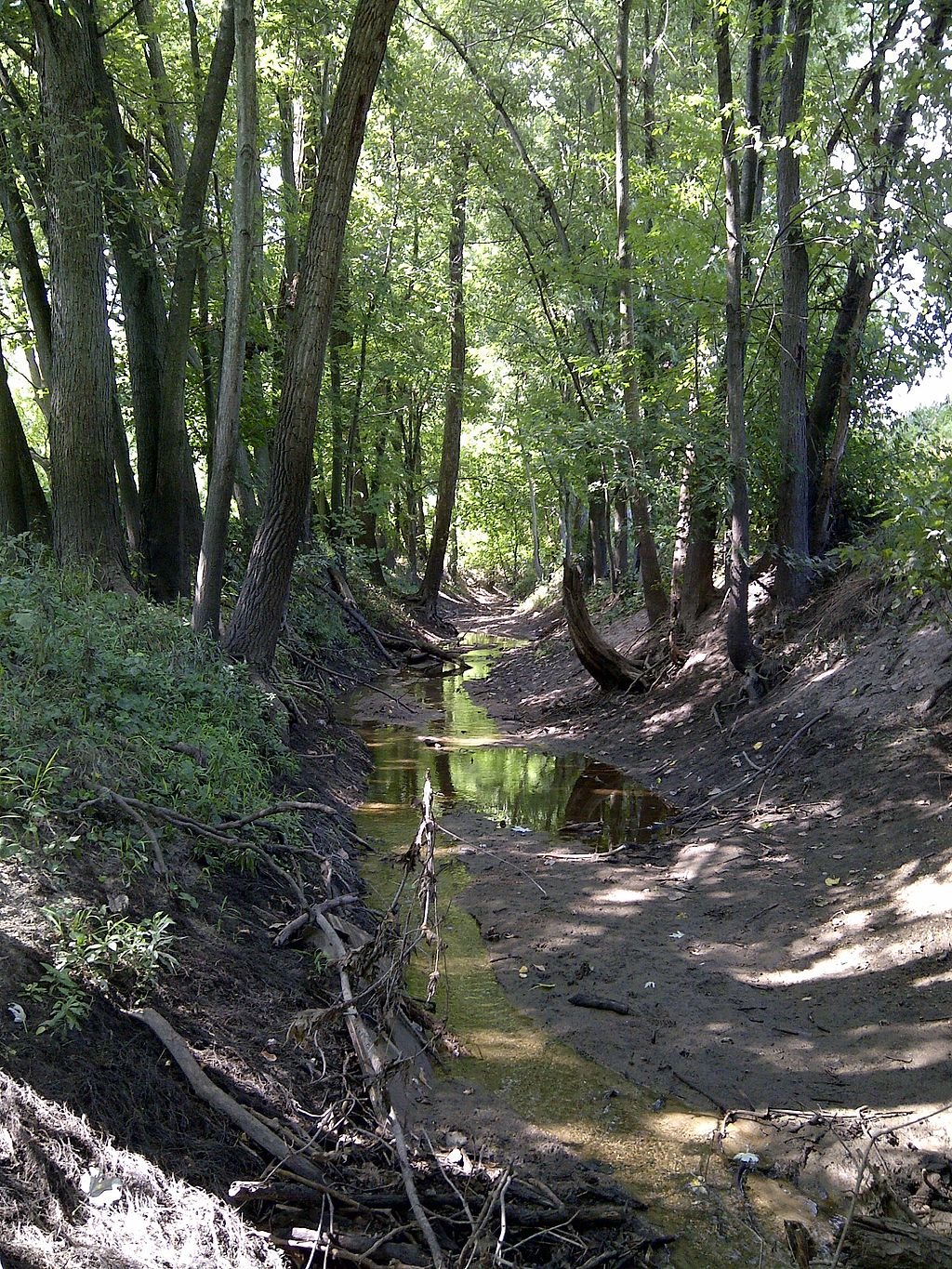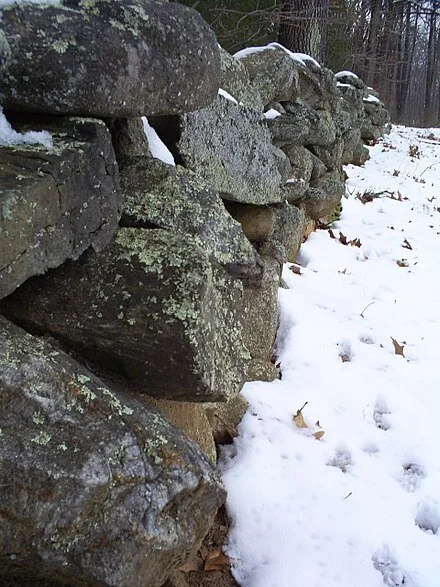
‘For what they are’
— Photo J. Pinta (Redline2200)
By June our brook’s run out of song and speed.
Sought for much after that, it will be found
Either to have gone groping underground
(And taken with it all the Hyla breed
That shouted in the mist a month ago,
Like ghost of sleigh-bells in a ghost of snow)—
Or flourished and come up in jewel-weed,
Weak foliage that is blown upon and bent
Even against the way its waters went.
Its bed is left a faded paper sheet
Of dead leaves stuck together by the heat—
A brook to none but who remember long.
This as it will be seen is other far
Than with brooks taken otherwhere in song.
We love the things we love for what they are.
— “Hyla Brook,’’ by Robert Frost (1874-1963). Hyla Brook is near the farm in Derry, N.H., where Frost lived with his family in 1900-1911, before he became famous.
J. Pinta (Redline2200) -
And the lichens keep eating
Stone wall at what had been Robert Frost's farm in Derry, N.H., which he describes in his famous poem "Mending Wall"
"Many New England stone fences built between 1700 and 1875 were laid by gangs of workers who piled stone at the rate of so much a rod. Edwin Way Teale says that in the latter years of the 19th Century, before economic and social developments began obliterating some of the walls, there were a hundred thousand miles of stone fences in New England. Even today, for many of them, the only change has been the size of the lichens, those delicate rock-eating algae that can live nine hundred years."
William Least Heat Moon, in Blue Highways

